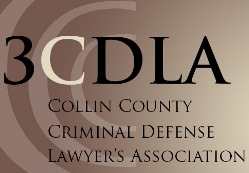There are three standardized field tests that most officers use. These include the HGN (eye) test, the walk and turn test, and the one leg stand. You may be asked to perform these tests in the field and again in the police station. You do NOT have to take any field sobriety test and may politely refuse and request the counsel of your attorney.
DETAILS REGARDING DWI SOBRIETY TESTS:
There are three standardized field sobriety tests (SFSTs):
1. HGN (Horizontal Gaze Nystagmus):
The police have you follow a pen or a light with your eyes, to see if your eyes follow smoothly (a sign of sobriety) or if they jerk repeatedly (supposedly a sign of intoxication). I advise that, before doing this test, you ask “What exactly are you looking for in my eyes?” They should tell you “Jerking movements, or the lack thereof.” Then you should state: “Can’t head injuries cause those same jerking movements, and some medications?” Yes, they can. “Well, then, I’ve had head injuries before, so I’m not going to do that test.”
The Three (Supposed) Indicators of Intoxication on HGN:
Eyeballs jerking as the pen is moved horizontally
Eyeballs jerking prior to 45 degrees when the pen is moved very slowly
Eyeballs jerking when the pen is held out to the extreme left and right
There is plenty of scientific literature establishing that eyeballs jerk like this when alcohol is present. However, in my opinion HGN shouldn’t be used as a sobriety test because the eyes in some people jerk at alcohol concentration levels half of the legal limit, and sometimes even lower than that. There are 6 possible “clues” that the police look for in HGN testing. Their training says that 4 or more clues indicate intoxication. But a study done by the National Highway Traffic Safety Administration (NHTSA) shows that some people show 4 clues at alcohol levels less than 25% of the legal limit! (The legal BAC limit is 0.08, and the NHTSA HGN robustness study shows one person having 4 HGN clues at 0.016 BAC!)
2. The WAT (Walk And Turn):
You may have heard this test being called “walking a straight line.” In the DWI industry, it’s referred to as the walk and turn, or the “WAT”. The police ask you to stand on a line with the heel of your right shoe touching the toe of your left shoe. You are asked to place your arms straight down to your sides (as if they were against the seam of your pants) and maintain that terribly awkward position for about 90 seconds while they give you additional instructions. You are then instructed to take 9 steps out and 9 steps back, counting each step out loud, looking at your feet, keeping your arms to your sides, touching heel to toe on each step, and turning in a very specific unnatural way. There are the eight clues, or indicators of intoxication, that the police look for during the walk and turn:
Starting before being told to do so
Failing to maintain the starting position until told to begin
Using your arms for balance
Stepping off of the line
Stopping during the test
An improper turn
Failing to touch heel to toe.
Taking an incorrect number of steps
3. The OLS (One Legged Stand):
The police ask you to stand on either leg with your other leg straight out in front of you, six inches off of the ground, with your toe pointed and parallel to the ground. Your arms are to be held straight down to your sides (as if against the seam of your pants), as you count to 30 by stating “one- thousand one, one-thousand two, one-thousand three, etc.”
The Four Supposed Indicators of Intoxication:
Raising your Arms for Balance
Hopping
Putting your Foot Down
Swaying
OTHER COMMON (BUT NOT STANDARDIZED) SOBRIETY TESTS: Some police will ask the DWI suspect to perform additional sobriety tests. Although the following tests are not “standardized,” they are still commonly used:
Reciting the alphabet. You’d be surprised at how many people have difficulty reciting the alphabet. To make it more difficult, the police often ask the suspect to start and end at a designated place somewhere in the middle, often asking you to start at the letter C or D, and ending with the letter S or T. Unless you have practiced reciting the alphabet lately, I’d advise not doing it as a sobriety tests. Better yet, practice it until you can do it right.
Counting backwards, from one nondescript number to another, typically from 38 to 22. The hardest part of this test seems to be remembering where to stop.
The finger count: The police have the suspect touch his thumb to each of his fingers, counting each of his fingers as he touches it, one thru four, and then backwards from four to one.
The Rhomberg stationary balance test: The police have the suspect close his eyes, tilt his head back, put his arms straight down to his sides, and estimate when 30 seconds is up. I wouldn’t recommend you doing this test under any circumstances. It almost always makes people look bad.









